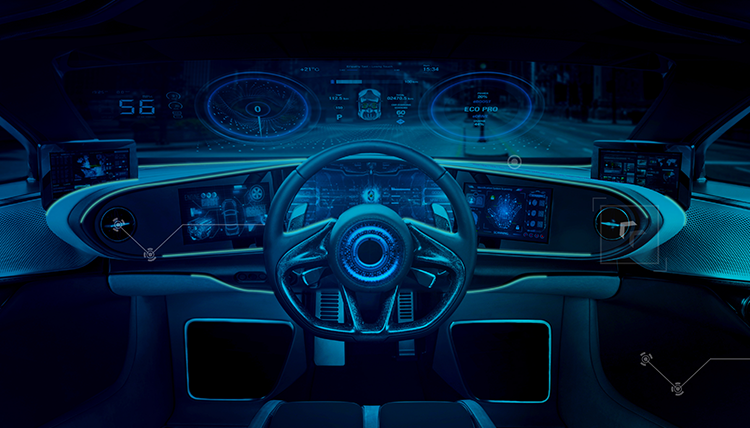New research conducted by Wards Intelligence for Hexagon’s Manufacturing Intelligence division reveals that traditional carmakers are not prioritizing the adoption of ‘industry 4.0’ processes, and risk being blindsided by new market entrants.
Big Tech and unicorn start-ups from Silicon Valley, the UK, and China are disrupting the electric vehicles (EV) market with advanced digitalization and automation capabilities, enabling time-to-market reductions from several years to as little as three months. The EV market is projected to soar to global sales of 34.7 million by 2030, and it is critical for OEMs to match the disruptors’ pace of innovation in order to participate. Despite this, only 48% of the auto industry report they plan to invest more in the types of Smart Manufacturing strategies their competitors are using, while 25% have no plans.
The new players benefit from the fact that low EV order volumes are helping speed overtake scale as the key factor in automotive manufacturing. This leaves conventional carmakers exposed to electronics companies such as Foxconn and Huawei, which are used to rapid innovation cycles and face low barriers because consumers expect more integrated digital technologies, new car designs render as many as 90% of automotive parts from existing ICE vehicles redundant, and their strategies that are less reliant on current supply chains and mass-manufacturing plants. The research finds that only 8% of carmakers see pure-play EV manufacturers as a threat, yet Tesla is already the market leader for battery electric vehicles (BEVs), while the likes of Lucid rapidly are scaling up with vertically-integrated EV production.
In contrast, the data reveals a disconnect in the equivalent progress towards digital transformation by larger OEMs. While there has been a definite uptick in interest around “smart” automotive manufacturing, the research shows that recognition of its value is not always accompanied by the implementation. Instead, the data reveals that the industry sees sourcing the required volume of parts and the inability to achieve economies of scale as the greatest perceived risk to the success of EV supply chains.
Paolo Guglielmini, President of Hexagon’s Manufacturing Intelligence division, said: “Our findings show that automakers’ challenges in getting a foothold in the new EV world order are as much internal as they are external. The need to make EVs more affordable at current order volumes, coupled with delivering greater choice or ‘cars-to-order’ means traditional high volume manufacturing lines must be replaced by more agile manufacturing, built around speed to market and possibly forgoing the ‘just-in-time’ model for good. The challenge for incumbents is doing so, while still achieving the required profit margins. This can only be resolved through vertical integration of the development and manufacturing processes, but this isn’t easy and necessitates a cultural shift to match the technology investments.
“Traditional automotive manufacturing business models are being reconfigured to prioritize flexibility over process, empowering people with more integrated processes and greater automation. Digital design and manufacturing approaches are key to agility and are a large part of the reason digital natives are making waves in the market. The big OEMs are not standing still – we are seeing incredible innovation by companies that are having to overhaul their global operations at a rate of knots – but they need to embrace continuous improvement processes and revisit the degree and type of collaboration they have with their suppliers to ensure they come out on the winning side of the electric vehicle pivot.”
Overall, the data shows that there is growing interest in smart manufacturing approaches that apply pervasive connectivity, cloud and edge computing with momentum in data analytics, AI and robotics affirming that the industry is on the threshold of unprecedented change with very different ideas and levels of maturity on the journey to Industry 4.0. The convergence of these additional technologies will act as an adoption catalyst, with OEMs and their supply chains trying to adapt to this change as they evolve with the market.
THE ELECTRIC VEHICLE PIVOT white paper created by Wards Intelligence for Hexagon provides insight and analysis based on research and survey data on the evolving automotive supply chain and the emergence of smart manufacturing associated with the escalating shift to electric vehicles (EV).
This content was originally published on the Hexagon MI website.

